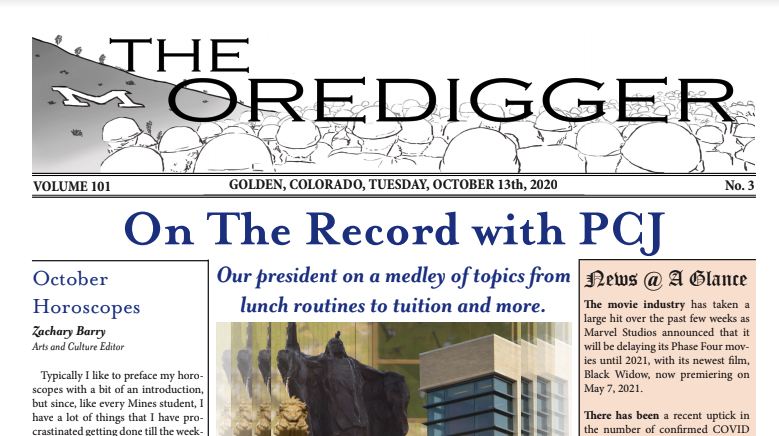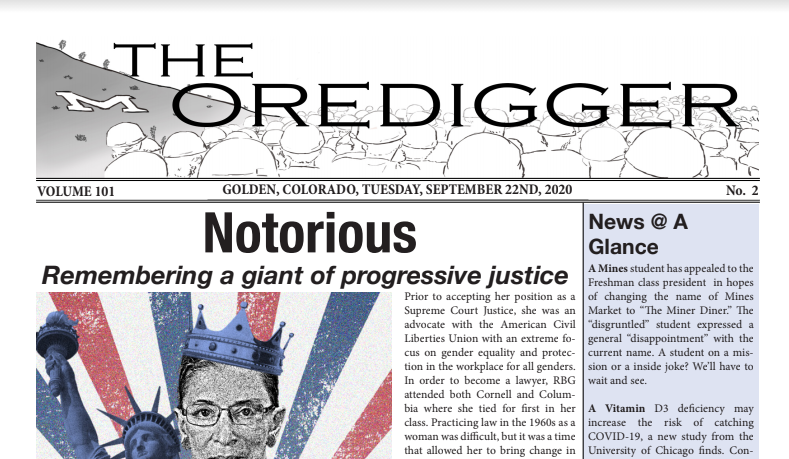Colorado School of Mines faculty have always been involved in research on our campus. December, 1874, was no different, as the Colorado Transcript published a letter from the then Territorial School of Mines Prof. E. J. Mallet to William N. Byers. The letter discussed Mallet’s opinions on descriptions of coal as he proposed, “To give up entirely the term lignite as a special class name.” Feeling that the confusion caused by referring to Colorado mineral fuel as a class was unnecessary, he requested replacing the general use of the term lignite with specific use of lignite, caking bituminous, non-caking bituminous, and anthracite. Mallet explained that “the above classification draws sharply a line of demarcation between coals and, as it depends on physical as well as chemical properties, it clearly expresses their relative characteristics.”
For anyone concerned about mortality, the paper also responded to an interesting study in England in which a doctor had “been making some interesting researches lately concerning the hours of the day at which death is apt to occur.” His results showed that deaths from chronic diseases occurred most often between eight and ten in the morning. He additionally found people most often die of “acute diseases” such as pneumonia in the early morning or the afternoon. The doctor suggested that those suffering from these diseases employ more medical professionals at this time. The student who is not afflicted with a fatal illness and does not want to wait long to see a medical professional might want to avoid calling a doctor at any of these times.
If Mines becomes too difficult, one important job the Colorado Transcript reports as coming to the area is that of grasshopper watcher. W.D. Arnett recommended, based on 15 years of studying grasshoppers, that the US Army Signal Corps, a military communication agency, report on the movement of grasshoppers. This idea was, “Favorably endorsed by Prof. Henry of the Smithsonian Institute at Washington, and the matter is now under consideration by General [Albert] Meyer [founder of the Signal Corps].” Preventing serious crop damage is an important mission indeed, even if it is not really a military matter.



'This Week in Colorado History November 29 – December 5' has no comments
Be the first to comment this post!